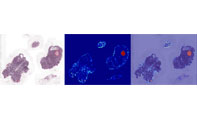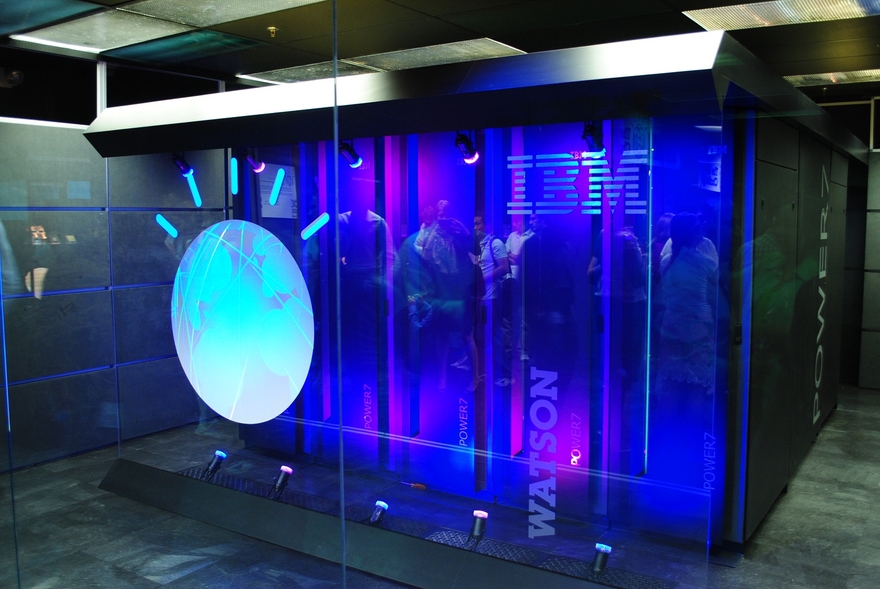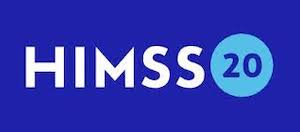deep learning
See the following -
A Look at Open Source Image Recognition Technology
 Image recognition technology promises great potential in areas from public safety to healthcare...At the Supercomputing Conference in Denver last year, I discovered an interesting project as I walked the expo floor. A PhD student from Louisiana State University, Shayan Shams, had set up a large monitor displaying a webcam image. Overlaid on the image were colored boxes with labels. As I looked closer, I realized the labels identified objects on a table. Of course, I had to play with it. As I moved each object on the table, its label followed. I moved some objects that were off-camera into the field of view, and the system identified them too.
Image recognition technology promises great potential in areas from public safety to healthcare...At the Supercomputing Conference in Denver last year, I discovered an interesting project as I walked the expo floor. A PhD student from Louisiana State University, Shayan Shams, had set up a large monitor displaying a webcam image. Overlaid on the image were colored boxes with labels. As I looked closer, I realized the labels identified objects on a table. Of course, I had to play with it. As I moved each object on the table, its label followed. I moved some objects that were off-camera into the field of view, and the system identified them too.
- Login to post comments
Affordable COVID-19 Diagnoses for Hospitals: How Open Source Software Helps
 The most common COVID-19 symptoms—such as coughing, fever, and shortness of breath—are shared with many other diseases. Diagnosing a patient accurately is therefore a challenge. Although a diagnosis of COVID-19 might not affect treatment, it would help a hospital predict a patient's trajectory and anticipate the need for urgent intervention. But current tests, relying on blood or mucus samples, are not particularly accurate. In this article, we'll see how open source software can help hospitals make better diagnoses. I'll concentrate on one specific role, and on the ways open source facilitates finding a solution and keeping it affordable. Many aspects of the problem feed into the solution discussed here. The article is based on work by researcher Trevor Grant.
The most common COVID-19 symptoms—such as coughing, fever, and shortness of breath—are shared with many other diseases. Diagnosing a patient accurately is therefore a challenge. Although a diagnosis of COVID-19 might not affect treatment, it would help a hospital predict a patient's trajectory and anticipate the need for urgent intervention. But current tests, relying on blood or mucus samples, are not particularly accurate. In this article, we'll see how open source software can help hospitals make better diagnoses. I'll concentrate on one specific role, and on the ways open source facilitates finding a solution and keeping it affordable. Many aspects of the problem feed into the solution discussed here. The article is based on work by researcher Trevor Grant.
- Login to post comments
Artificial Intelligence Achieves Near-Human Performance in Diagnosing Breast Cancer
 Human and computer analyses together identify cancer with 99.5% accuracy. Pathologists have been largely diagnosing disease the same way for the past 100 years, by manually reviewing images under a microscope. But new work suggests that computers can help doctors improve accuracy and significantly change the way cancer and other diseases are diagnosed. A research team from Beth Israel Deaconess Medical Center (BIDMC) and Harvard Medical School (HMS) recently developed artificial intelligence (AI) methods aimed at training computers to interpret pathology images, with the long-term goal of building AI-powered systems to make pathologic diagnoses more accurate...
Human and computer analyses together identify cancer with 99.5% accuracy. Pathologists have been largely diagnosing disease the same way for the past 100 years, by manually reviewing images under a microscope. But new work suggests that computers can help doctors improve accuracy and significantly change the way cancer and other diseases are diagnosed. A research team from Beth Israel Deaconess Medical Center (BIDMC) and Harvard Medical School (HMS) recently developed artificial intelligence (AI) methods aimed at training computers to interpret pathology images, with the long-term goal of building AI-powered systems to make pathologic diagnoses more accurate...
- Login to post comments
Baidu Open Sources Its Deep Learning Platform PaddlePaddle
Taking a cue from some of its U.S. peers like Google, Chinese Internet search giant Baidu has decided to open source its deep learning platform. The company claims that the platform, code-named PaddlePaddle after PArallel Distributed Deep LEarning, will let developers focus on the high-level structure of their models without having to worry about the low-level details. A machine translation program written with PaddlePaddle, for example, requires significantly less code than on other popular deep learning platforms, said Baidu spokeswoman Calisa Cole...
- Login to post comments
Black Duck Announces Open Source “Rookies of the Year”
 Black Duck...today announced the eighth annual Open Source Rookies of the Year, recognizing the top new open source projects initiated in 2015. The selected projects show how diverse and ambitious open source software development has become. From communications to healthcare and beyond, they offer innovative solutions to a range of consumer- and enterprise-grade problems. The 2015 Rookies class reflects three industry trends shaping the future of open source software...
Black Duck...today announced the eighth annual Open Source Rookies of the Year, recognizing the top new open source projects initiated in 2015. The selected projects show how diverse and ambitious open source software development has become. From communications to healthcare and beyond, they offer innovative solutions to a range of consumer- and enterprise-grade problems. The 2015 Rookies class reflects three industry trends shaping the future of open source software...
- Login to post comments
Experts Say IBM Watson’s Flaws are Rooted in Data Collection and Interoperability
 Despite being backed by a significant budget and the marketing power of a major technology company, IBM Watson appears to be falling short of expectations when it comes to revolutionizing cancer care. The shortcomings of IBM’s premier artificial intelligence system—made famous by its appearance on Jeopardy in 2011 and later co-pted to provide support for oncologists—are linked to a number of factors, according to an in-depth investigation by Stat that included interviews with doctors and artificial intelligence experts from around the world...
Despite being backed by a significant budget and the marketing power of a major technology company, IBM Watson appears to be falling short of expectations when it comes to revolutionizing cancer care. The shortcomings of IBM’s premier artificial intelligence system—made famous by its appearance on Jeopardy in 2011 and later co-pted to provide support for oncologists—are linked to a number of factors, according to an in-depth investigation by Stat that included interviews with doctors and artificial intelligence experts from around the world...
- Login to post comments
Facebook’s Artificial Intelligence Research Lab Releases Open Source FastText on GitHub
Every day, billions of pieces of content are shared on Facebook. To keep up with the data, Facebook has been using a variety of tools to classify text. Traditional methods of classification, like deep neural networks are accurate, but have serious training requirements. Read More »
- Login to post comments
Genomics and Precision Medicine Pioneer Jonathan Rothberg to Deliver Connected Health Conference Keynote on Transforming Healthcare with Semiconductors and Artificial Intelligence
 The Personal Connected Health Alliance (PCHAlliance) today announced that genomics and precision medicine pioneer, Jonathan Rothberg, MS, MPhil, and PhD, will deliver a keynote presentation at the Connected Health Conference on Monday morning, December 12, 2016. Rothberg's keynote will focus on the integration of novel medical devices with deep learning and cloud computing to transform and democratize healthcare...
The Personal Connected Health Alliance (PCHAlliance) today announced that genomics and precision medicine pioneer, Jonathan Rothberg, MS, MPhil, and PhD, will deliver a keynote presentation at the Connected Health Conference on Monday morning, December 12, 2016. Rothberg's keynote will focus on the integration of novel medical devices with deep learning and cloud computing to transform and democratize healthcare...
- Login to post comments
HealthTap Launches Dr. A.I.
 HealthTap, the world’s first Global Health Practice providing 24/7 immediate access to top doctors via video, text, and voice, today launched Doctor A.I., a personal Artificial Intelligence-powered “physician” that helps route users to doctor-recommended insights and care immediately. Each year, more than a billion people search the Web for health information, with approximately 10 billion symptom-related health searches per year on Google alone. Unlike a doctor, the Web only provides access to content semantically-related to these symptoms...
HealthTap, the world’s first Global Health Practice providing 24/7 immediate access to top doctors via video, text, and voice, today launched Doctor A.I., a personal Artificial Intelligence-powered “physician” that helps route users to doctor-recommended insights and care immediately. Each year, more than a billion people search the Web for health information, with approximately 10 billion symptom-related health searches per year on Google alone. Unlike a doctor, the Web only provides access to content semantically-related to these symptoms...
- Login to post comments
HIMSS20 - The Open Health Companies That Were Going to Participate

The HIMSS20 conference has been cancelled as a result of concerns due to the global spread of the coronavirus. Although the conference is not taking place, we have decided to publish a variation on our annual HIMSS conference Open Health Guide. Open Health News has published Open Health Guides to HIMSS conferences almost since our founding. They were widely read with thousands of reads each. So they are now a tradition for our publication and there were many great open health companies that were going to have exhibits at the HIMSS20 conference as well as presentations. Dominant health IT vendors spend over a billion dollars a year in PR and marketing for their lock-in solutions. Unable to match that kind of PR power, the annual HIMSS conference has been one of the few opportunities where Open Health companies have had to present their solutions to the world.
- The Future Is Open
- Login to post comments
Hot Programming Trends from 2016
 Technology is constantly moving forward—well, maybe not always forward, but always moving. Even for someone who keeps an eye on the trends and their effect on programmers, discerning exactly where things are headed can be a challenge. My clearest glimpse into open source programming trends always comes in the fall when I work with my fellow chairs, Kelsey Hightower and Scott Hanselman, and our fantastic programming committee to sculpt the coming year's OSCON (O'Reilly Open Source Convention). The proposals that we get and the number focused on specific topics turn out to be good indicators of hot trends in the open source world. What follows is an overview of the top programming trends we saw in 2016...
Technology is constantly moving forward—well, maybe not always forward, but always moving. Even for someone who keeps an eye on the trends and their effect on programmers, discerning exactly where things are headed can be a challenge. My clearest glimpse into open source programming trends always comes in the fall when I work with my fellow chairs, Kelsey Hightower and Scott Hanselman, and our fantastic programming committee to sculpt the coming year's OSCON (O'Reilly Open Source Convention). The proposals that we get and the number focused on specific topics turn out to be good indicators of hot trends in the open source world. What follows is an overview of the top programming trends we saw in 2016...
- Login to post comments
Introducing OpenAI
 OpenAI is a non-profit artificial intelligence research company. Our goal is to advance digital intelligence in the way that is most likely to benefit humanity as a whole, unconstrained by a need to generate financial return. Since our research is free from financial obligations, we can better focus on a positive human impact. We believe AI should be an extension of individual human wills and, in the spirit of liberty, as broadly and evenly distributed as possible.The outcome of this venture is uncertain and the work is difficult, but we believe the goal and the structure are right. We hope this is what matters most to the best in the field.
OpenAI is a non-profit artificial intelligence research company. Our goal is to advance digital intelligence in the way that is most likely to benefit humanity as a whole, unconstrained by a need to generate financial return. Since our research is free from financial obligations, we can better focus on a positive human impact. We believe AI should be an extension of individual human wills and, in the spirit of liberty, as broadly and evenly distributed as possible.The outcome of this venture is uncertain and the work is difficult, but we believe the goal and the structure are right. We hope this is what matters most to the best in the field.
- Login to post comments
Open Source Initiative Joins The Digital Public Goods Alliance
 OSI to contribute to Digital Public Goods Alliance’s mission to address world’s most pressing economic challenges by furthering adoption of Open Source software...The DPGA is part of the response to the United Nation’s call to end poverty, protect the planet and improve the lives and prospects of everyone, everywhere. The announcement was made as part of the opening keynote at the Free and Open Source Developers Meeting (FOSDEM) and celebration of OSI’s 25 year anniversary.The DPGA is a multi-stakeholder initiative with a mission to accelerate the attainment of the Sustainable Development Goals (SDGs) in low- and middle-income countries by facilitating the discovery, development, use of and investment in digital public goods. Digital public goods are Open Source software, open data, open AI models, open standards and open content that adhere to privacy and other applicable laws and best practices, do no harm by design and help attain SDGs.
OSI to contribute to Digital Public Goods Alliance’s mission to address world’s most pressing economic challenges by furthering adoption of Open Source software...The DPGA is part of the response to the United Nation’s call to end poverty, protect the planet and improve the lives and prospects of everyone, everywhere. The announcement was made as part of the opening keynote at the Free and Open Source Developers Meeting (FOSDEM) and celebration of OSI’s 25 year anniversary.The DPGA is a multi-stakeholder initiative with a mission to accelerate the attainment of the Sustainable Development Goals (SDGs) in low- and middle-income countries by facilitating the discovery, development, use of and investment in digital public goods. Digital public goods are Open Source software, open data, open AI models, open standards and open content that adhere to privacy and other applicable laws and best practices, do no harm by design and help attain SDGs.
- Login to post comments
Open Source Projects Are Transforming Machine Learning and AI
 Machine learning and artificial intelligence have quickly gained traction with the public through applications such as Apple’s Siri and Microsoft’s Cortana. The true promise of these disciplines, though, extends far beyond simple speech recognition performed on our smartphones. New, open source tools are arriving that can run on affordable hardware and allow individuals and small organizations to perform prodigious data crunching and predictive tasks.
Machine learning and artificial intelligence have quickly gained traction with the public through applications such as Apple’s Siri and Microsoft’s Cortana. The true promise of these disciplines, though, extends far beyond simple speech recognition performed on our smartphones. New, open source tools are arriving that can run on affordable hardware and allow individuals and small organizations to perform prodigious data crunching and predictive tasks.
- Login to post comments
RSNA Launches International COVID-19 Open Radiology Database
 The Radiological Society of North America (RSNA) and the RSNA COVID-19 AI Task Force today announced the launch of the RSNA International COVID-19 Open Radiology Database (RICORD). RICORD is envisioned as the largest open database of anonymized COVID-19 medical images in the world. More than 200 institutions around the world have expressed their interest in participating. The database will include supporting clinical information and expert annotations. It will be freely available to the global research and education communities.
The Radiological Society of North America (RSNA) and the RSNA COVID-19 AI Task Force today announced the launch of the RSNA International COVID-19 Open Radiology Database (RICORD). RICORD is envisioned as the largest open database of anonymized COVID-19 medical images in the world. More than 200 institutions around the world have expressed their interest in participating. The database will include supporting clinical information and expert annotations. It will be freely available to the global research and education communities.
- Login to post comments